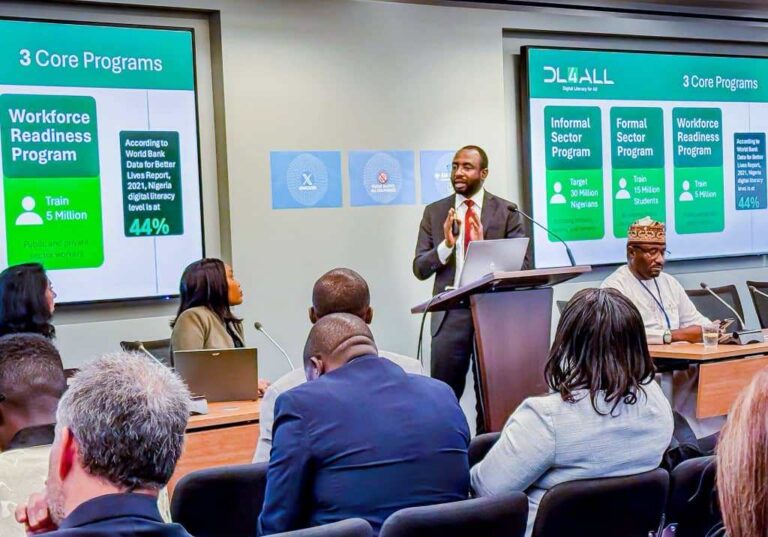Behind Nigeria’s glowing reputation as Africa’s digital frontier lies a quieter, grittier truth — one built not on apps and investment headlines, but on sweat, survival, and endless improvisation.
It’s the world of Murtala, a university graduate who earns a living charging phones beneath a torn tarpaulin. It’s Mary, whose soy milk business costs nearly as much to produce as it earns. It’s Yiteovie, a fisherwoman saving coins that disappear before they can multiply.
They are the unsung backbone of the nation — millions of informal entrepreneurs who make up about 65% of Nigeria’s GDP and generate over 80% of its jobs. Most never set out to start a business; unemployment forced them into it.
But according to a sweeping new study — the Moniepoint Informal Economy Report 2025 — this backbone is starting to buckle. It reveals a paradox at the heart of Africa’s biggest economy: millions of businesses that sell more but earn less, growing without prospering.
Profitless Growth and the Great Squeeze
For two-thirds of Nigeria’s small business owners, revenues rose last year. Yet, fewer than half saw an increase in profit. The Moniepoint data paints a picture of an economy where the hustle never sleeps — but the returns barely stretch through the month.
Inflation is the invisible predator here. Nearly 8 in 10 businesses reported spiraling operating costs — higher prices for raw materials, relentless fuel hikes, and crushing transport fees amplified by the falling Naira.
Mary’s story captures the absurdity of it all: her soy milk once sold for ₦150, now ₦400. Sales have tripled, but her income hasn’t — every extra Naira goes straight to covering costs.
Across the country, thousands live this same contradiction: entrepreneurs selling more to earn less, hustling harder just to stay where they are.
Trapped Between Cash and Credit
Moniepoint’s findings — drawn from interactions with over 5 million small business owners — expose another layer of complexity. For most informal traders, cash is still survival.
Despite years of fintech expansion, 51% of payments still happen in physical Naira. The reason isn’t resistance to progress — it’s lack of trust. Poor network connections, scarce POS terminals, and frequent transaction failures make the cashless dream feel distant.
Ironically, when these same traders restock their shops or buy supplies, many use bank transfers. It’s a quiet acknowledgment that the formal system works — just not for them.
That distrust extends to credit too. More than half of informal entrepreneurs refuse to take loans, haunted by the fear of being trapped in unpayable debt. Their caution is less about ignorance and more about instinctive risk management in a country with no safety net.
The Precarious Edge of Resilience
The numbers are stark: 44% of informal business owners earn less than ₦20,000 (about $13) daily. Nearly 42%, like Yiteovie, have savings so fragile they couldn’t last a month without income.
“I save with akawo,” she says — a local thrift system. “But I need to feed my family first.”
The report makes it clear: Nigeria’s famed entrepreneurial energy has become a survival mechanism, not a growth engine. The “hustle economy” is now operating at its limits — stretched, exhausted, and dangerously unsustainable.
When Survival Isn’t Enough
Moniepoint’s study is more than a data release; it’s a mirror reflecting an uncomfortable truth. The informal sector — the real Nigeria — is innovating daily just to endure. But endurance isn’t progress.
Without policies that simplify formalisation, extend genuine financial support, and stabilise inflation, this vast network of microbusinesses could stall — taking the country’s economic pulse down with it.
Beneath the noise of fintech revolutions and startup summits, the story of Nigeria’s economy is still being written in cash, sweat, and sheer willpower. And the people writing it — Murtala, Mary, and Yiteovie — are fighting harder than ever to stay in business.

